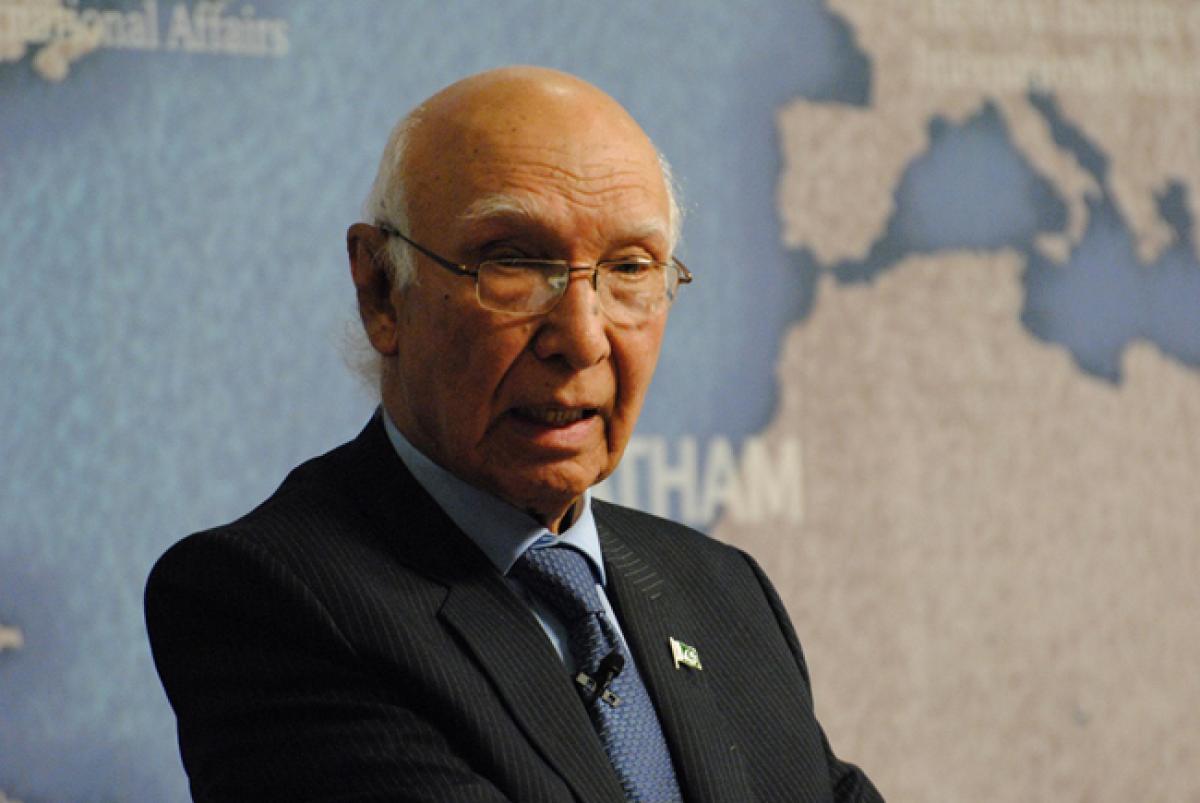Live
- No confidence in Biren Singh govt, NPP supremo says after a day after withdrawing support
- Women of steel: Promoting environment conservation, come what may
- APSSDC signs tripartite MoU to upgrade skills of AP youth
- ‘AAP govt settling Rohingyas in Delhi, giving voter cards’
- Students advised to pursue excellence through learning
- Cold wave hits AP, Telangana: temperatures plunge to single digits
- AAP replaces Gahlot with another Jat face in Cabinet
- A Rising Star in Indian Cinema
- Telangana Introduces EV Policy to Prevent Severe Air Pollution
- Group- III exams conclude
Just In

Pakistan has approached the World Bank amid reports that India could revoke the 56-year-old Indus Waters Treaty, with senior Pakistani officials taking up the matter with the international lender which had mediated the water-sharing deal.
Islamabad: Pakistan has approached the World Bank amid reports that India could revoke the 56-year-old Indus Waters Treaty, with senior Pakistani officials taking up the matter with the international lender which had mediated the water-sharing deal.
A delegation of the Government of Pakistan led by the Attorney General for Pakistan, Ashtar Ausaf Ali, met with senior officials of the World Bank at the World Bank Headquarters in Washington DC, to discuss matters relating to Pakistan's recent Request for Arbitration given to India pursuant to Article IX of the Indus Waters Treaty, 1960, Geo News reported.
The report also said Pakistan approached the International Court of Justice, but did not provide any details.
On August 19, Pakistan had formally requested India for settlement of outstanding disputes pertaining to India's construction of Kishenganga and Ratle hydroelectric plants on rivers Neelum and Chenab respectively, by referring the matters to the Court of Arbitration as provided in Article IX of the Treaty.
Under the treaty, the World Bank has an important role in establishment of the Court of Arbitration by facilitating the process of appointment of three judges, called Umpires, to the Court, while each country appoints two arbitrators.
The Pakistani officials met with senior officials of the World Bank to insist on early appointment of the judges and empanelment the court, it said.
The Pakistani delegation consisted of Attorney General for Pakistan Ashtar Ausaf Ali; Secretary, Ministry of Water & Power, Muhammad Younus Dagha; Pakistan Commissioner for Indus Waters, Mirza Asif Baig and others, it said.
Pakistan's Ambassador to the US Jalil Abbas Jilani and World Bank's Executive Director for Pakistan Nasir Khosa were also present.
In the meeting with the Pakistani delegation, the World Bank committed itself to timely fulfilling its obligations under the treaty while remaining neutral, the report said.
Under the treaty, which was signed by Prime Minister Jawaharlal Nehru and Pakistan President Ayub Khan in September 1960, waters of six rivers - Beas, Ravi, Sutlej, Indus, Chenab and Jhelum were to be shared between the two countries.
The treaty provides specific design criteria for any hydro-electric power plants to be built by India. Pakistan has held the position the Kishenganga and Ratle hydroelectric plants violate the design parameters of the treaty.
Earlier, Prime Minister's Advisor on Foreign Affairs and Security, Sartaj Aziz said an attempt by India to block Pakistan's water could be seen as "an act of war." Yesterday, Prime Minister Narendra Modi met with officials to review provisions of the Indus Water Treaty with Pakistan.
In that meeting it was decided that India will "exploit to the maximum" the water of Pakistan-controlled rivers, including Jhelum, as per the water-sharing pact.
The meeting came as India weighed its options to hit back at Pakistan in the aftermath of the Uri terror attack that left 18 soldiers dead, triggering demands that the government scrap the water-sharing deal to mount pressure on the country.

© 2024 Hyderabad Media House Limited/The Hans India. All rights reserved. Powered by hocalwire.com







